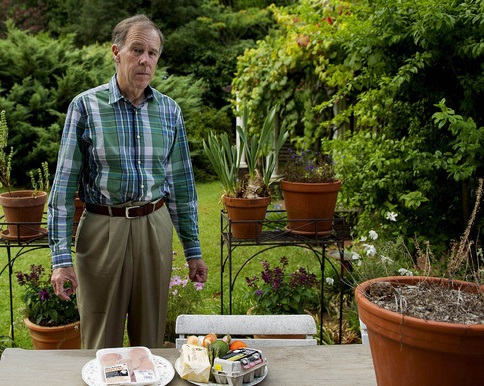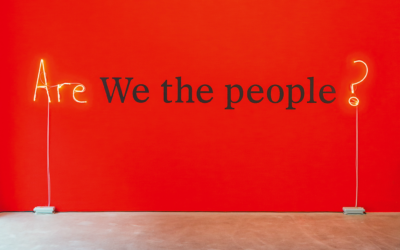“The Noakes narrative has all the elements needed for a quasi-religious story,” writes Brent Meersman.
I recently attended a private trade event hosted by PR-Net and Original Eating at which Professor Tim Noakes was apparently going to brief journalists on the latest research underpinning his LCHF (low carb, high fat) diet.
There is no doubt that the “Banting” diet works and it has taken the country by storm, but there is a big step between seeing it work and believing why it works. I arrived sceptical of the science behind it and, after listening to Noakes, I left even less convinced. He played too fast and loose with facts and peppered his talk with personal anecdotes.
For starters, there are all my skinny vegan friends whose diets are over 80% carbohydrates. Then there are all the people I know who shed 10kg simply by cutting out booze.
I could see why Noakes has been so successful, as he spoke off the cuff in the middle of a circle of food company reps marketing LCHF product lines. The fact that Noakes used to promote a high-carbohydrate diet and was as convinced of the science behind that as he is of its opposite today, ironically only strengthens his message in the fruitcake world of diets.
The Noakes narrative has all the elements needed for a quasi-religious story. First, he lived in misguided ignorance. Then he had a Damascus road experience while out jogging. He actually used the words “it was like I was reborn”. There are none so convincing as the repentant. As a true believer, he must share the good news: you can eat fat. Positioning his diet as a social revolution rather than an eating plan, he believes we can all help to redeem mankind.
Noakes even invokes an idyllic, innocent, long-lost paradise when our ancestors ate hippo fat. At 65, a veteran of 70 marathons, saviour Noakes is living proof of his convictions — successful, apparently healthy and brimming with good feeling. And, as with any religious story, we need evil forces to fight in this case a conspiracy between the devilish medical profession and giant global food corporations.
To complete his message, Noakes singles out an individual in our midst for us to applaud, someone who has miraculously lost a lot of weight after years of struggling to little effect on the treadmill.
All Noakes needs now is an element of martyrdom and persecution, something I’m happy to provide. Setting the pseudoscience aside, the consequences for the planet if populations in their billions went off rice and pursued Noakes’s protein-rich, high animal fat diet would be catastrophic.
It flies in the face of everything we know about greenhouse gases, water scarcity and environmental pollution, not to mention growing concerns about biological hazards and an emerging consensus on ethical issues attached to ever greater industrial meat production.
Under the guise of a specific health issue — the diabetes pandemic — all Noakes has really done is reinvent the Atkins diet (officially called the Atkins nutritional approach, first written about by Robert Atkins in 1972 and since refined several times) with a recipe book for the chattering classes who are struggling with their weight because of their overconsumption.
It is also foolish hubris on his part to want to extend his dietary experiments to farmworkers and their children. Then again, doing “good works” among the poor is essential to sustain and grow believers.
The phenomenal success of Noakes and his The Real Meal Revolution has already made itself felt on the restaurant scene in Cape Town, which is probably where his diet belongs.
Diners used to be indignant if there wasn’t the obligatory basket of free bread on the table when the drinks came. Nowadays, in Cape Town at least, waiters are told to “take it away” and patrons ask whether they may have their steak without the potatoes. In more than one establishment in recent months, I’ve been pre-empted by a waiter asking: “You want that without rice, I suppose?”
One of my regular sushi spots, Fugu, now offers a “slimmer’s platter” — mostly sashimi with maki rolled with carrot and cucumber slices instead of rice. My local Knead bakery is doing a rather convincing low-carb bread for R55 a loaf; it’s sold out by noon.
The Wellness Warehouse is struggling to keep up with the demand for flax crackers. The corner Italian restaurant is serving pizza with a chickpea flour base, which is mistakenly thought of as providing a low-carb alternative. Almost scandalously, coming from the land of the potato, Belgian restaurant Den Anker has introduced a low-carb weekend menu. The Kauai chain is planning low-carb wraps and even Butler’s Pizza is toying with home delivery of a low-carb pizza base. I had a sneak preview taste and it’s the most successful of the alternatives to flour dough I’ve tried.
Now two restaurants with Banting menus have opened. Once Bitten will review these next time to see whether chefs can make low-carb meals delicious, even if the science is hard to swallow.
via Mail & Guardian
PHOTO CREDIT: Tightening his belt: Tim Noakes. (Liza van Deventer, Foto24/Gallo Images)






